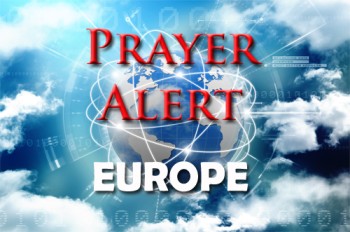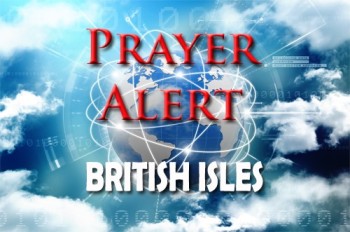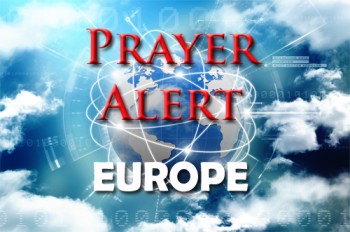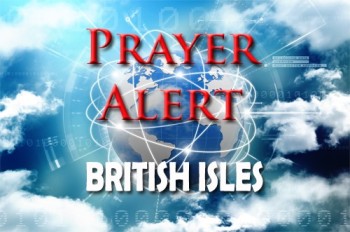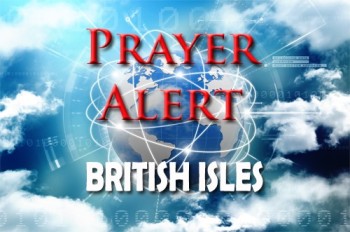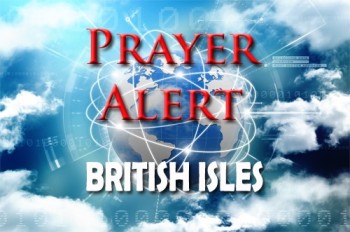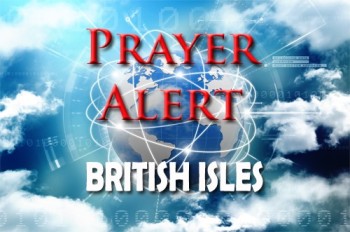Displaying items by tag: cost of living crisis
Cost of living
The cost-of-living crisis triggered by the Ukraine war, the energy crunch, surging inflation and the coronavirus pandemic has become the greatest worry for EU citizens, according to a new Eurobarometer showing 45% of respondents are currently having some or a lot of difficulties with their personal income. The poll speaks of a ‘polycrisis mood’ across the continent. Additionally, 46% of Europeans admit their standards of living have already decreased as a result of the mounting crises, while 39% expect to see a decline sometime this year. More worryingly, 30% of respondents struggle to pay their monthly bills ‘from time to time’ and 9% say this is the case ‘most of the time.’
Energy bills
Ofgem says a typical household gas and electricity bill will rise to £3,549 a year from October. Save the Children warned the rise could put young people's health at risk, with families unable to afford to heat their homes. Money expert Martin Lewis predicted grave consequences without more state help. Liz Truss has ‘ruled out’ further direct support for everybody to help cover the costs of surging energy bills, and was not considering further support like the £400 payment that all households will receive this winter. Rishi Sunak says the government must provide some direct support to everyone. Ovo Energy has proposed a ten-point plan for the Government to subsidise soaring gas and electricity bills so that the poorest households get the most support. A key proposal is for energy firms to borrow from a government-backed fund to subsidise bills.
Europe’s drought and cost of living
Rivers drying up and farmland parched: Europe’s water scarcity is affecting lives and businesses. Scientists warn the current European drought could become its worst in over 500 years. Water scarcity has hit 60% of the continent from Italy to the UK. An unusually dry winter and scorching summer heat reduced rivers to rivulets. The historic water reserve lows have forced governments to restrict supplies, seriously affecting many sectors from agriculture to shipping. In July heatwaves shaved 0.5% off Europe’s annual GDP. Wildfires destroyed crops across Italy, Greece, France, and Spain, and energy prices are up because of the war in Ukraine. The Global Commission on Adaptation said an estimated investment of $800m in climate programmes could save poor nations up to $16bn every year.
Leaders’ talks on cost-of-living crisis
Nicola Sturgeon sent a letter to Boris Johnson saying he should have urgent talks with the administrations in Scotland, Wales and Northern Ireland due to the fast-deteriorating cost of living situation. The PM agreed, but he is now on holiday until 22 August and he will then have two weeks to organise any meeting before he moves out of Number 10. UK ministers had already committed the equivalent of 1.5% of the country's GDP to supporting households with the increasing cost of living. The Government was warned by business leaders that it must put ‘all hands to the pump’ to address the crisis ahead of the autumn.
Cost of living crisis and cutting taxes
Public finances are under pressure from a predicted recession. Both PM candidates agree that people will need help with the cost of living this autumn, but tax cuts will only bring relief to taxpayers. Cutting health and social care levies gives no money to pensioners or anyone earning less than £12,570. The new prime minister will not start the job for another four weeks. The candidates are coming under increasing pressure to spell out their plans. Gordon Brown recently said an emergency budget was urgently needed and that Boris Johnson, Ms Truss and Mr Sunak must agree on one now. A financial time bomb will explode with the October energy price cap. Loughborough University’s Prof Hirsch said, ‘It is urgent for the next prime minister to ensure families have enough to live through this crisis and beyond.’ Some will be £1,600 worse off per year. On 11 August government ministers met with energy giants, focusing on how energy companies can alleviate pressure on consumers: see
Energy rebate: renters ‘at mercy of landlords’
An estimated 585,000 households - 13% of everyone renting in the private market - have energy bills included in their rent. Citizens Advice said renters could miss out on the £400 energy rebate and the warm home discount if they are not the bill payer because those are paid to the landlord. The charity Shelter said tenants whose energy bills were included in their rent or service charge will be at the mercy of their landlord passing on this much-needed support, as there is no specific legal obligation for landlords to do so. They are not allowed to overcharge tenants for energy used or make a profit on it, but this could happen if they pocket the government support and continue to charge the same rate for utilities. The Government is looking into this, as it has acknowledged it is not right. Landlords can only charge for energy used, the standing charge and VAT.
Millions targeted by scammers in cost-of-living crisis
Citizens Advice is warning of different cost-of-living tactics used by scammers. Over 75% of UK adults report being targeted by scammers this year, including emails claiming to be from Ofgem asking people to enter their bank details to get the £400 energy rebate, or claiming the government is giving £200,000 at random to pensioners, disabled or on low income. The director of National Trading Standards said, ‘Criminals are exploiting people’s worries as household bills rise. Consumers are put under increasing pressure from waves of scam emails, or imposters cold calling. Legitimate organisations would never put you on the spot in this way.’ Popular scams are people saying they are from postal or courier delivery services, from the government or HMRC with rebates and refunds, online shopping, energy, medical or fake investments.
